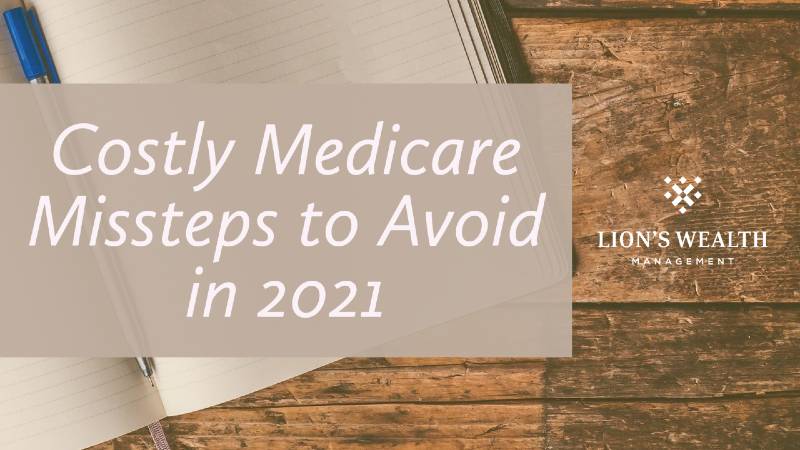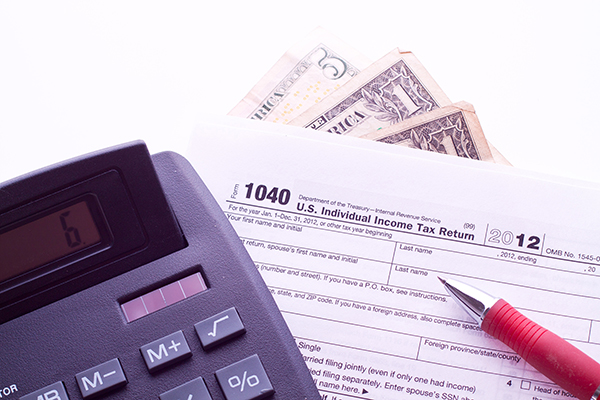KEY TAKEAWAYS
Medicare is an important part of anyone’s retirement plan, but it can be confusing and easy to make mistakes. If you want to avoid overpaying on your premiums or missing important deadlines, check out the top mistakes you should avoid.
When you turn 65-years old, you turn to Medicare for your healthcare needs. While it’s a great insurance program that should help cover most of your medical needs, it’s not a one-size-fits-all approach and there are plenty of mistakes people make.
If you want to avoid overpaying on premiums, or you don’t know how to choose the right plan, check out the top most common Medicare mistakes and how to avoid them.
Don’t Miss your Enrollment Date
This is crucial. You have a specific open enrollment period that if you miss, will cost you in higher premiums on your Medicare Part B.
Your enrollment period begins three months before the month you turn 65-years old and continues for three months after your birthday for a total of 7 months. If you miss that time, you can enroll during general open enrollment, which is January 1 – March 31st, but you don’t get coverage until July and your Medicare Part B costs will be higher.
Don’t Miss the Special Enrollment Period
If you have insurance coverage past your 65th birthday and it’s not retiree medical insurance or COBRA, you have a special enrollment period.
The special enrollment period only applies to anyone with job-based insurance or insurance from your spouse’s job. If you lose the insurance because you or your spouse stopped working, you have 8 months from that date to sign up for Medicare.
If you do, you won’t face the Medicare premium penalties for not signing up during your initial enrollment period.
Not Changing or at Least Looking at Medicare Part D Each Year
Medicare Part D helps cover the cost of your prescriptions. But the premiums don’t stay the same each year and neither does the insurance coverage. Insurance companies often change requirements, co-pays, or even what drugs they’ll cover.
In addition, many people are on different medications from year to year, which may make your current Medicare Part D less helpful than originally. Medicare Part D has open enrollment from October 15 to December 7 of each year, so it’s worth re-evaluating your plan each year to make sure you’re making the most of your savings.
Not Paying Attention to your Medicare Advantage’s Network
Before you take a Medicare Advantage Plan, make sure you know the network. Make sure your doctors are in the network and that there is a wide enough selection of other specialists enrolled in your area.
You can’t predict what medical needs you’ll have from year to year, but you can at least plan accordingly by making sure there are enough doctors available on your plan. If you go out of network, not only will you pay a surcharge for the services, but your plan might not pay any of the costs. Each plan differs, but many don’t cover out-of-network medical services.
Not Enrolling in Medicare Part D Right Away
You may think you’re healthy enough and don’t need medications, so you don’t sign up for Medicare Part D. Sure, it may save you a little money on premiums, but what you don’t know is you’ll pay a penalty for each year that you don’t have Medicare Part D.
For each year that you delay, you’ll pay a 1 percent surcharge on top of the regular premium. When you do need the plan, you’ll pay higher costs than you would if you enrolled right away even though you didn’t need it at the time.
Skipping the Medigap Policy
If you’re relatively healthy, you may consider skipping the Medigap policy. You don’t want more premiums to pay and figure you don’t need it. But what happens when you have medical bills and wish you had it, you could be facing higher premiums and/or difficulty getting a policy.
When you enroll in Medigap within the first six months of turning 65-years old insurance companies can’t turn you away from any preexisting conditions. If you wait, they have the option to either turn you away and/or charge higher premiums.
Not Adjusting your Retirement Income to Avoid Higher Medicare Part B Premiums
Medicare Part B premiums are affordable for the most part, but if your income is higher than $87,000 as a single filer or $174,000 for married filing joint, you’ll pay higher premiums that could cost you $100 – $200 more per month.
Timing your retirement withdrawals so that you don’t cross that threshold is important if you want to keep your insurance costs down.
Assuming Medicare is too Expensive
Medicare does have out-of-pocket costs, which aren’t feasible for everyone but there is help. If you can’t afford the premiums or worry about the out-of-pocket costs, there are programs to help including both state and federal programs.
Get Help Enrolling in Medicare
If you aren’t sure what Medicare policy is right for you, or when/how to enroll, enlist help. Between the windows, you must enroll in, the choices you have, and the costs, it can be a lot to take in.
Don’t be embarrassed if you need help. Asking for help now could save you money on premiums, help you avoid surcharges, and help you find the most suitable insurance policy given your circumstances.
Fortunately, Medicare policies renew each year, so if you want to change policies or have a change in health and need more coverage, there are ways to improve the coverage you have, but you have to move within the enrollment periods allowed for each insurance type.







